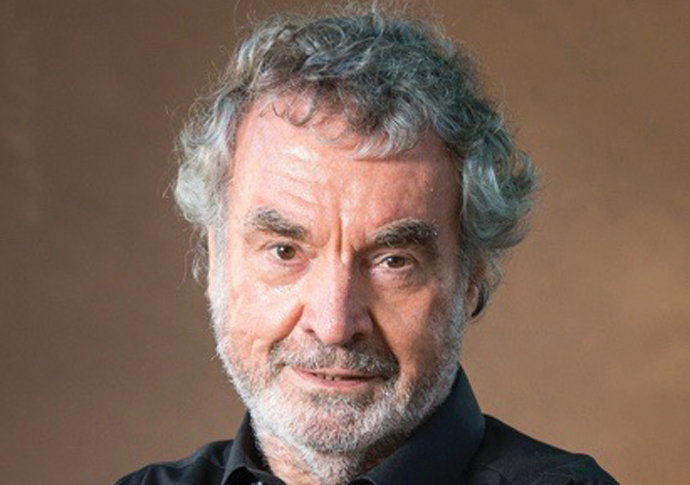Reasons to be cheerful


John Hands
WHERE do we come from? What are we? Where are we going?
So asks the title of Paul Gauguin’s 1898 painting. John Hands’ previous book Cosmosapiens addressed Gauguin’s first two questions by critically evaluating the theories of Big Bang cosmology and Darwinian evolution. In The Future of Humankind: Why We Should be Optimistic he now turns his attention to the third mystery.
The book’s subtitle clearly signals that Hands is no Private Frazer, rolling his eyes and prophesying our doom. This is no Panglossian dismissal of the real threats our species faces. Extinction by natural disaster, overpopulation, pandemic or accidental nuclear war are promptly dealt with: unlikely
Hands devotes a long chapter to the most contentious of these existential threats – anthropogenic climate change. A lot of discussion is dedicated to scientific critics of the Intergovernmental Panel on Climate Change’s climate modelling and predictions.
The whole issue has become so politicised and divided along cultural and generational fault-lines, that forming a truly objective assessment of this complex and evolving science is a daunting task even for those of us with a good scientific education.
Gut instincts can’t be trusted when the future of the planet is at stake although any claims and interpretations of evidence can easily provoke sharp reaction.
The sensitivity of experts in this field becomes apparent in the chapter detailing exchanges with those whom Hands had sent draft copies to. The author, neither a climate change alarmist nor a denier, concludes that a warming planet neither implies human extinction nor the mass extinction of other species. The latter phenomenon is occurring, he says, partly due to other factors such as habitat loss. That does not suggest complacency and we should act to reduce greenhouse gas emissions, he argues, uncontroversially.
After considering the threats to homo sapiens comes a review of possible futures transformed by science and technology.
I once attended a teacher training day where the speaker seriously told us that we would soon be replaced by machines, with expert systems giving feedback on student work. Hands takes on the prediction that we will all be replaced by workplace robots, scorning the exaggerated claims that have long been made for artificial intelligence. At least the worst that a robot teacher could do is to write the equivalent of “unexpected item in bagging area” on your essay; unlike self-driving cars,which have been implicated in some deaths.
One chapter took me back to my own boyhood reading matter, with cutaway diagrams of starships and orbiting space colonies. “Sorry, but ye cannae change the laws of physics,” as Scotty would say … or biology, Bones might add.
A discussion of advances in the biomedical sciences, and in particular CRISPR gene-editing, opens up the vistas of ethical debate about genetic engineering. So much scientific research has been digested in this volume when we are only just beginning to ponder the consequences of it all. Even purely scientific questions remain unresolved around the role of telomeres in the ageing process. Such waters are muddied as competing teams of researchers vie to promise us anti-ageing drugs. Attempts to substantially extend lifespans with drugs and cybernetics have so far failed, the author notes.
We then follow Corporal Jones into the realms of fantasy as Hands considers claims of cryogenic immortality. Freezing is not the problem here; it’s keeping the defrosted mind intact.
In these times, when human stupidity prevails, so that we act so often against our own best interests, predicting the worst often feels like the Zeitgeist. I’m all in favour of ensuring that this is not a self-fulfilling prophecy.
Let’s not lose our own heads as we beg for sanity. No wonder some are tempted to agree with Nietzsche that humanity must be overcome. Can we transform ourselves into something better with cybernetic enhancement, or nanotechnology or escape biology and upload human minds onto silicon hardware? We can now map/model the brain functions of simple nematode worms but Hands reminds us that the human brain is, by contrast, “the most complex thing in the known universe”.
Consciousness is another can of worms and the final chapter reviews the unfolding of human consciousness from the Big Bang to scientific thought. Elsewhere from the book under review here,the Nobel prizewinner Roger Penrose warns against comparing brains to computers since consciousness cannot be modelled by algorithms.
In summary, this is science journalism of the highest rank, in contrast to undigested press releases from hyperbolic futurists like Elon Musk.There is an ongoing glossary of technical terms and good academic referencing throughout.
The next time some Cassandra tries to tell you that humanity is finished, I suggest that you direct them to this remarkable book – assuming that they are interested in judging the evidence rather than in impressing the goths at a party. It might make them more interesting company.
• The Future of Humankind: Why we should be Optimistic. By John Hands, Castleton, £24.99



